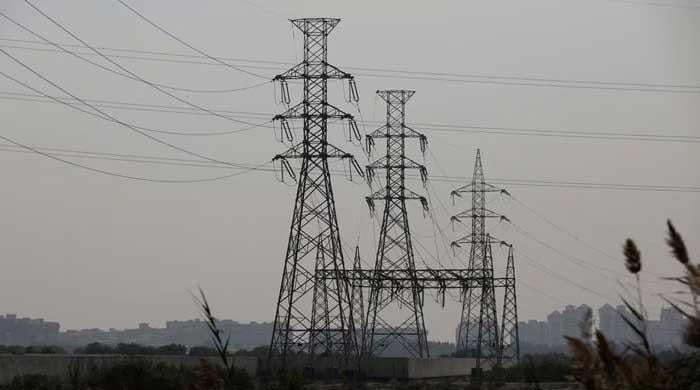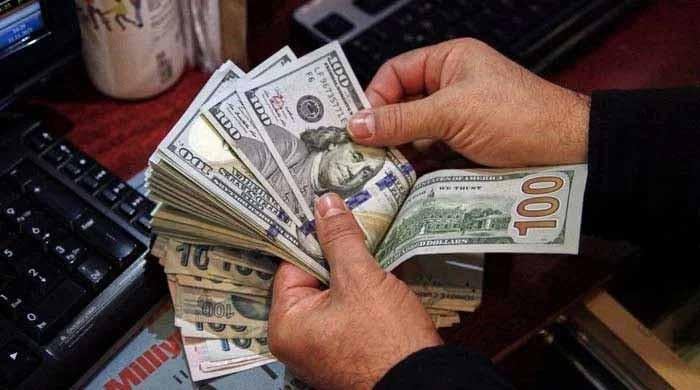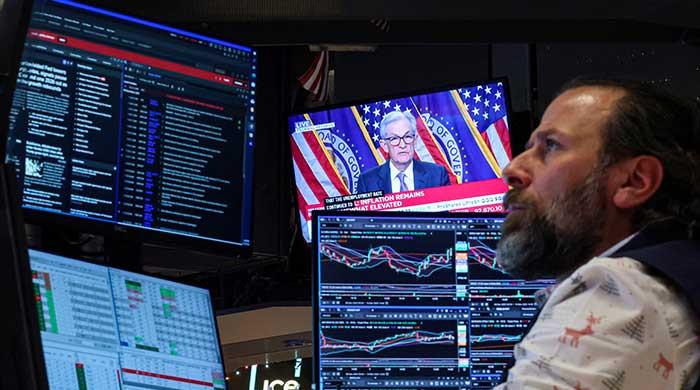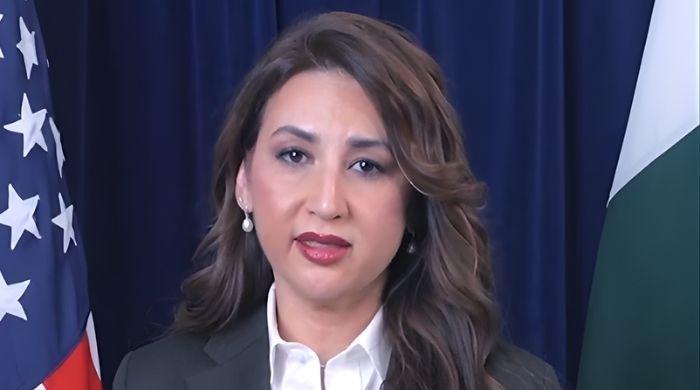Pakistani stocks register highest weekly gain in a decade after record losses over rupee fluctuation
The benchmark KSE-100 index gained 2,537 points or 7.5% during the outgoing week—the biggest increase for over a decade
May 25, 2019
KARACHI: The benchmark index of the Pakistan Stock Exchange gained 2,537 points during the outgoing week, recovering by 7.5% since fluctuations in the exchange rate and economic uncertainty wreaked havoc in the financial markets.
The benchmark KSE-100 index closed the outgoing week at 35,703 points, gaining Rs 400 billion in share values and market capitalisation reaching Rs7,200 billion.
The outgoing week's gains—the biggest increase in the market for over a decade—have so far helped the index recover 40% of its accumulated losses in the previous seven weeks.
The rupee registered record lows against the US dollar following the announcement of a $6 billion bailout agreement with the International Monetary Fund foreseeing a "market-determined rate" for the Pakistani currency.
Since last week, the rupee lost 3.74% against the dollar in the interbank market, with the currency cumulatively losing 37.45 since January 2018.
The IMF announcement sent shockwaves through the money and financial markets, with the KSE-100 plunging almost 4,000 points from 37,130 points on April 26 to a low of 33,166 at the end of last week—the market's worst week in over a decade and half.
Slow recovery
But, as confidence plummeted, Prime Minister's Adviser on Finance Dr Hafeez Shaikh flew into Karachi last Friday for a meeting with stockbrokers to regain their trust.
The markets have since started a slow journey to recovery, with the Pakistani rupee also achieving slow but steady gains against the US dollar in both the interbank and open markets.
During the week, the greenback also slid from its peak of Rs154 in the open market to Rs151.50 at the end of the week. It was helped by declines in the interbank, where the greenback settled at Rs151.91 at the end of the week.
The effects of renewed confidence and hopes of economic stability have also trickled down to prices of precious metals, with gold declining by Rs900 high from of Rs72,100 per tola (11.33 grams) during the outgoing week to close at Rs70,400 per tola (11.33 grams) on Friday.
Pakistan's central bank also raised the interest rate earlier this week by 150 basis points to 10.75 percent in the monetary policy announcement for the next two months that is seen as a move to stabilise the volatile local currency.
On Friday, an IMF spokesperson said the potential $6bn bailout program would help Pakistan bring its economy back on inclusive and sustainable growth trajectory, as the country is setting the stage for tough structural reforms.









